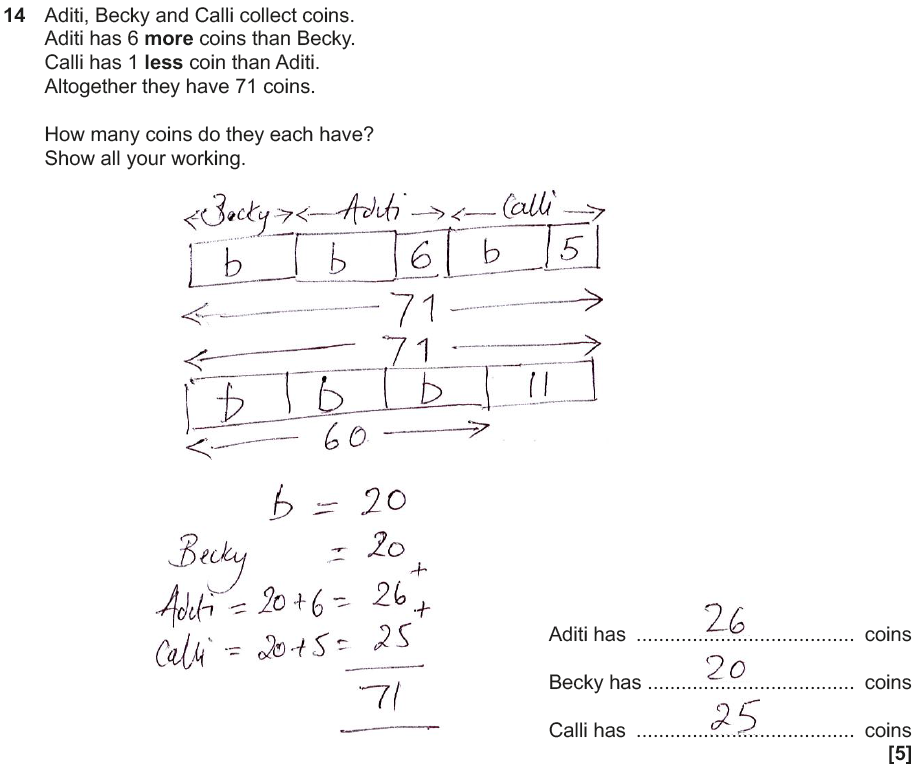Reflecting on the impact of GQ reform in mathematics
12 February 2020
Following the publication of the Ofqual report ‘The impact of GCSE reforms on students’ preparedness for A Level Maths and English Literature’, I'll share my observations from the report in conjunction with the examiners’ reports feedback from the 2019 A Level Maths assessments.
Ofqual report observations
The Ofqual report is based on interviews conducted in January and February 2019 with A Level Maths teachers with experience in teaching A Level to students that had studied the legacy GCSE as well as students who had studied the reformed GCSE.
June 2019 saw the first full assessment of the reformed, linear A Level Maths* and these students were also the first to sit the reformed GCSE (9-1) Maths back in summer 2017.
Overall, teachers felt “that the reformed GCSE prepares students for A Level, at least as well, if not better, than the legacy GCSE, with problem-solving skills particularly thought to be improved”. However, “some teachers thought that algebra skills (important for A Level study) were underdeveloped, but noted that this had also been the case for students that had studied the legacy GCSE”.
* Please note that there was an initial summer 2018 assessment of the new reformed linear A level Maths after one year of teaching, which was sat by a small cohort taking A Level Maths at the end of year 12 who then went on to sit A Level Further Maths at their end of year 13.
Shift in assessment focus
A significant feature of the GQ reform (General Qualifications reform includes GCSE and A Level) was a shift in the focus of Assessment Objectives (AOs). In mathematics there are three AOs that underpin the qualifications:
- AO1: Routine procedures
- AO2: Mathematical reasoning
- AO3: Problem solving (at A Level this also includes mathematical modelling).
Each question in a question paper will be given an AO designation, which ensures that all boards are asking the correct balance of procedural/reasoning/problem-solving questions. For the reformed GCSE (9-1) Mathematics qualification, the proportion of problem-solving marks increased to 30% in the Higher paper and 25% in the Foundation paper (from 15-25% on both tiers in the legacy GCSE).
In response to these changes there has been an increased focus on problem-solving in the delivery of the GCSE (9-1) Mathematics. One effective technique, sometimes referred to as Singapore Maths, encourages a mastery approach that progresses from concrete examples to pictorial representations, then finally to abstract symbolic representation.
Implications for the transition to A Level
It appears that GCSE (9-1) Mathematics students are developing successful problem-solving strategies that often avoid algebra.
If students are confident finding an answer by other means they’re not necessarily incentivised to embrace an algebraic method, even if it is more efficient (“My method works and I’ve got the answer, so why do I need to write it down with letters?”). In many cases, students are successfully employing bar model representations or trial and improvement approaches, when originally it may have been envisaged that students would solve it algebraically.

The above screenshot is a response to a question from the summer 2018 J560/01.
The disadvantage is that by using non-algebraic techniques, students are not gaining as much practice at manipulating algebraic expressions. Topics where candidates struggled in the June 2019 A Level Maths exams included proof, trigonometric identities and functions, where a clear sequence of algebraic logic needs to be presented.
More generally, examiners noted that candidates often dropped method marks (and hence subsequent accuracy marks) through mistakes in their application of algebra.
Next steps
Join us at our free Teacher Networks to discuss and share examples of different approaches to GCSE (9-1) Mathematics problem solving and ideas for supporting students transitioning from GCSE to A Level.
Take a look at the OCR Student guide to bridging the gap between GCSE and AS/A Level.
Stay connected
If you have any queries or questions, you can comment below, email us at maths@ocr.org.uk, call us on 01223 553998 or Tweet us @OCR_Maths.
You can also sign up to subject updates and receive up-to-date email information about resources and support.
About the author
Steven Walker, OCR Maths Subject Advisor
 Steven joined OCR during the recent qualification reform period, working on the redevelopment of Entry Level, GCSE (9-1), FSMQ and the suite of A Level Mathematics qualifications. He now focuses mainly on supporting the Level 3 qualifications. Steven originally studied engineering before completing a PGCE in secondary mathematics.
Steven joined OCR during the recent qualification reform period, working on the redevelopment of Entry Level, GCSE (9-1), FSMQ and the suite of A Level Mathematics qualifications. He now focuses mainly on supporting the Level 3 qualifications. Steven originally studied engineering before completing a PGCE in secondary mathematics.